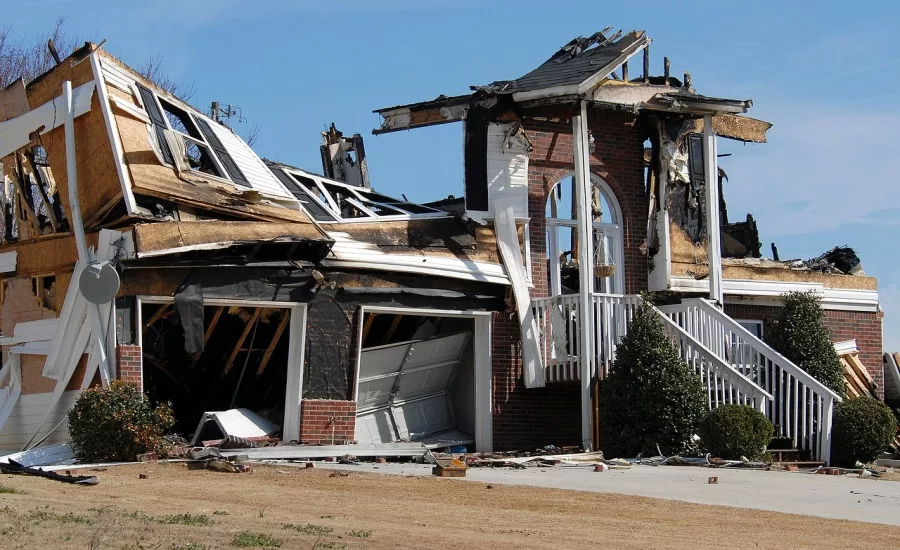Understanding the Restoration Client: Emotions, Expectations, & Keeping the Job Sold

A large flood or a catastrophic fire event can be one of the most traumatic events in a person’s life. Enter the restoration contractor. We get to see people at their most vulnerable: they’ve lost everything they own. Their clothes, their medications, their children’s school books, family photos. I’ve seen grown men collapse sobbing. Managed properly, you can be a hero but if you forget for even a minute that you are dealing with emotionally frayed people, watch out. All the anger they feel due to their loss will be focused on you like a laser beam. Understanding and being empathetic to what your customers are going through can be the difference between a good profitable job and a nightmare that won’t end.
Have you ever wondered why seemingly sane friendly people go ballistic because the paint you used in the bedroom is a half a shade off? It usually has nothing to do with paint colors. It has everything to do with the cumulative effects of the loss. Dealing with their family in a stressful situation. Dealing with an adjuster who is overworked and can’t be raised on the phone. Finding out the coverage they thought they had is inadequate. Living in an unfamiliar neighborhood away from friends. Mail delivery and school bus routes are different. And these are just a few of the multitude of stressors. Families are forced to make hundreds of decisions they never planned on having to make.
So how does a restoration contractor navigate the repair without becoming a lightning rod for all that anger?
The answer: Keeping the job sold. When we first meet these distraught people, we show great empathy - until the job is sold and we have our deposit check. Far too often, once the contract is signed, we consider it to be just another construction job to us. But it isn’t to them. The loss is still a great violation to them, their home and their family and if you forget that, look out.
Several years ago, I was selling a large, devastating house fire. The house was a complete loss and most of it had collapsed into the basement. I was standing with the homeowners in what was left of their living room. I was doing all the right things to sell the job. Right before I was getting ready to ask them to approve my work authorization, out of the corner of my eye, I saw one of my guys, while completing some emergency work, throw a cigarette butt down into the burnt debris in their former foyer. The homeowners never said a word about it but their whole demeanor changed. They didn’t approve my Work Authorization and we didn’t get the job. We disrespected their home irrespective of its condition. We forget the emotional attachment people have with their home.
You keep a job sold by showing empathy, in the beginning, the middle and the end. You honor all commitments. The person who sells the job stays in almost constant contact with the client. Easy communication is a must. Don’t wait for them to call you. You call them 2 or 3 times a week to take their temperature and put their minds at ease. When a problem arises, and it will, (don’t forget we are in the problem solving business,) you must address it completely and resolve it as soon as you can. When a mistake is made, fix it. Don’t argue, don’t make excuses, and don’t blame anyone else. Apologize and explain how you are going to prevent it from happening again. Handling a mistake properly can be opportunity to show your professionalism. Improper handling of a mistake can end you up in court unable to collect your money.
I’ve heard contractors say that they simply can’t spend a lot of time holding their customer’s hand throughout what could be a 4 to 6 month ordeal. I respond by saying, if you don’t have enough time to address these issues on the front end, you sure don’t have 10 times the amount of time to address them on the back end.
All construction projects are stressful. Remodels that homeowners had years to plan can put stress on marriages and their kids. Construction is disruptive almost by definition. Builders are there in the morning when the home owners wake up and when they come home at night. Dust is everywhere. Their daily routine is completely upended. They are tired of eating out, going to the laundromat and living in the basement and as much as they might like you personally, they just want you gone. When it’s a fire or flood, they had no time to plan, to get themselves mentally ready for the long reconstruction slog. They feel put upon and unlucky and that life is not being fair to them. And we become the symbol of that anger.
As restoration contractors, we see people at their lowest point all the time. They are at their wits end emotionally before we ever show up on the scene. A small misstep can explode into a furious tirade for no apparent reason and we take the brunt of it. Understand that you are dealing with very fragile people and act accordingly. Be ever empathetic. Listen listen listen. Let them unburden themselves. A sympathetic ear can go a very long way. Don’t make promises during the sale that you don’t intend to keep during reconstruction. One unfulfilled commitment will call all commitments into question.
Understand the type of client you are dealing with and every job, instead of becoming a law suit, can be an unfortunate situation that turned out well because they choose the right contractor who knew what they were going through.
Looking for a reprint of this article?
From high-res PDFs to custom plaques, order your copy today!








